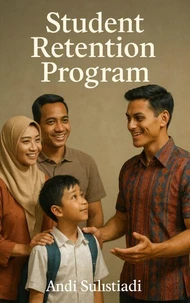One Quest, Two PathsThe "Lumpang, " a simple mortar and pestle, symbolizes a universal human endeavor: the pursuit of healing. This infographic explores two profound frameworks for achieving wholeness-the nature-centric wisdom of Indonesian ethnomedicine and the divine restoration promised in biblical theology. While their methods differ, both point to a holistic well-being that transcends the physical, touching the very essence of what it means to be human.
The work also details the extensive ethnobotanical knowledge of the Baduy and Dayak tribes, documenting numerous medicinal plants and their uses for treating various ailments. It highlights the holistic health philosophies of these indigenous communities, which integrate spiritual, social, and environmental dimensions into their healing practices. Furthermore, it provides a comparative analysis of these Indonesian traditions with biblical perspectives on healing.
It interprets biblical metaphors such as the cup and vessel, the leaves of the Tree of Life, and the Cross to discuss concepts of divine provision, judgment, and ultimate restoration. Ultimately, Lumpang synthesizes these diverse cultural and theological frameworks to argue that both systems share a fundamental human aspiration for wholeness, well-being, and a harmonious life, addressing not only physical health but also spiritual and social dimensions of existence.
One Quest, Two PathsThe "Lumpang, " a simple mortar and pestle, symbolizes a universal human endeavor: the pursuit of healing. This infographic explores two profound frameworks for achieving wholeness-the nature-centric wisdom of Indonesian ethnomedicine and the divine restoration promised in biblical theology. While their methods differ, both point to a holistic well-being that transcends the physical, touching the very essence of what it means to be human.
The work also details the extensive ethnobotanical knowledge of the Baduy and Dayak tribes, documenting numerous medicinal plants and their uses for treating various ailments. It highlights the holistic health philosophies of these indigenous communities, which integrate spiritual, social, and environmental dimensions into their healing practices. Furthermore, it provides a comparative analysis of these Indonesian traditions with biblical perspectives on healing.
It interprets biblical metaphors such as the cup and vessel, the leaves of the Tree of Life, and the Cross to discuss concepts of divine provision, judgment, and ultimate restoration. Ultimately, Lumpang synthesizes these diverse cultural and theological frameworks to argue that both systems share a fundamental human aspiration for wholeness, well-being, and a harmonious life, addressing not only physical health but also spiritual and social dimensions of existence.

 , qui est-ce ?
, qui est-ce ?